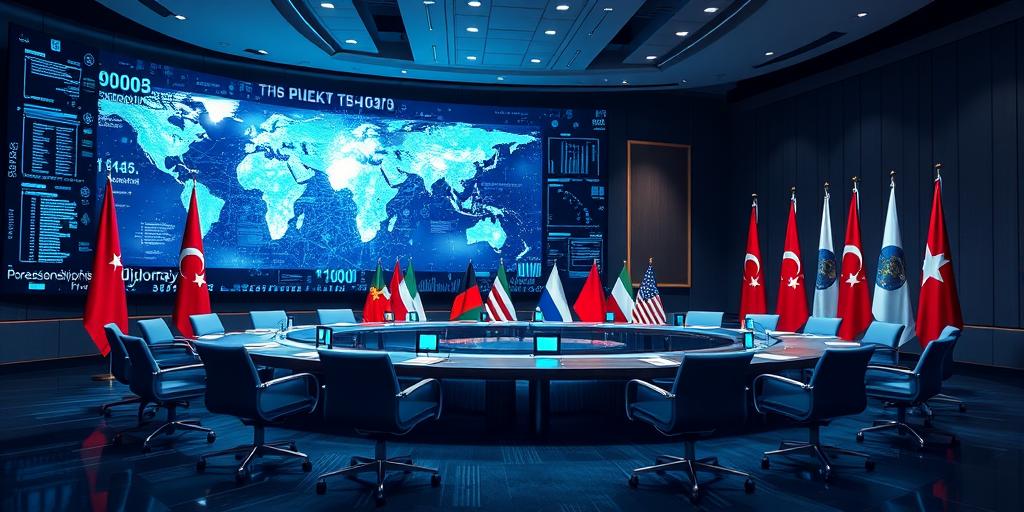The Transforming Landscape of Diplomacy
In an era defined by unprecedented technological advancement, the traditional practices of diplomacy are undergoing a profound transformation. The digital age has ushered in new tools, platforms, and challenges that are reshaping how nations communicate, negotiate, and engage with one another.
The Rise of Digital Diplomacy
Digital diplomacy, also known as e-diplomacy or cyber diplomacy, leverages digital technologies to achieve diplomatic objectives. This encompasses a wide range of activities, including:
- Public Diplomacy: Utilizing social media and online platforms to engage with foreign publics, disseminate information, and promote cultural understanding.
- Consular Services: Providing online assistance and information to citizens abroad, streamlining visa applications, and offering emergency support.
- Negotiation and Mediation: Facilitating virtual meetings and negotiations between diplomats, enabling real-time communication and collaboration.
- Crisis Management: Coordinating responses to international crises through digital channels, sharing information, and countering disinformation.
Key Technologies Driving Change
Several key technologies are driving the evolution of diplomacy in the digital age:
- Social Media: Platforms like Twitter, Facebook, and LinkedIn have become essential tools for diplomats to communicate directly with foreign audiences, share policy updates, and engage in public debates.
- Video Conferencing: Platforms like Zoom and Microsoft Teams enable diplomats to conduct virtual meetings, negotiations, and conferences, reducing travel costs and increasing efficiency.
- Artificial Intelligence (AI): AI-powered tools can analyze vast amounts of data to identify trends, predict potential conflicts, and provide insights to diplomats, enhancing decision-making.
- Blockchain Technology: Blockchain can enhance the security and transparency of diplomatic communications, ensuring the integrity of sensitive information.
Challenges and Opportunities
While the digital age offers numerous opportunities for diplomacy, it also presents several challenges:
- Cybersecurity Risks: Diplomatic communications and data are vulnerable to cyberattacks, requiring robust cybersecurity measures to protect sensitive information.
- Disinformation and Propaganda: The spread of disinformation and propaganda through social media can undermine trust in diplomatic efforts and exacerbate international tensions.
- Digital Divide: Unequal access to digital technologies can create disparities in diplomatic capabilities, potentially marginalizing developing nations.
- Ethical Considerations: The use of AI and other advanced technologies in diplomacy raises ethical concerns about privacy, bias, and accountability.
The Future of Diplomacy
As technology continues to evolve, the future of diplomacy will be shaped by several key trends:
- Increased Reliance on Data Analytics: Diplomats will increasingly rely on data analytics to inform their decisions, identify potential risks, and develop effective strategies.
- Greater Use of AI and Automation: AI and automation will streamline routine diplomatic tasks, freeing up diplomats to focus on more complex and strategic issues.
- Enhanced Cybersecurity Measures: Protecting diplomatic communications and data from cyberattacks will become a top priority, requiring significant investments in cybersecurity infrastructure and expertise.
- Emphasis on Digital Literacy and Skills: Diplomats will need to develop strong digital literacy and skills to effectively navigate the digital landscape and leverage new technologies.
Conclusion
The digital age has fundamentally altered the landscape of diplomacy, presenting both opportunities and challenges. By embracing new technologies, addressing cybersecurity risks, and fostering digital literacy, nations can harness the power of the digital age to enhance diplomatic efforts, promote international cooperation, and build a more peaceful and prosperous world.









